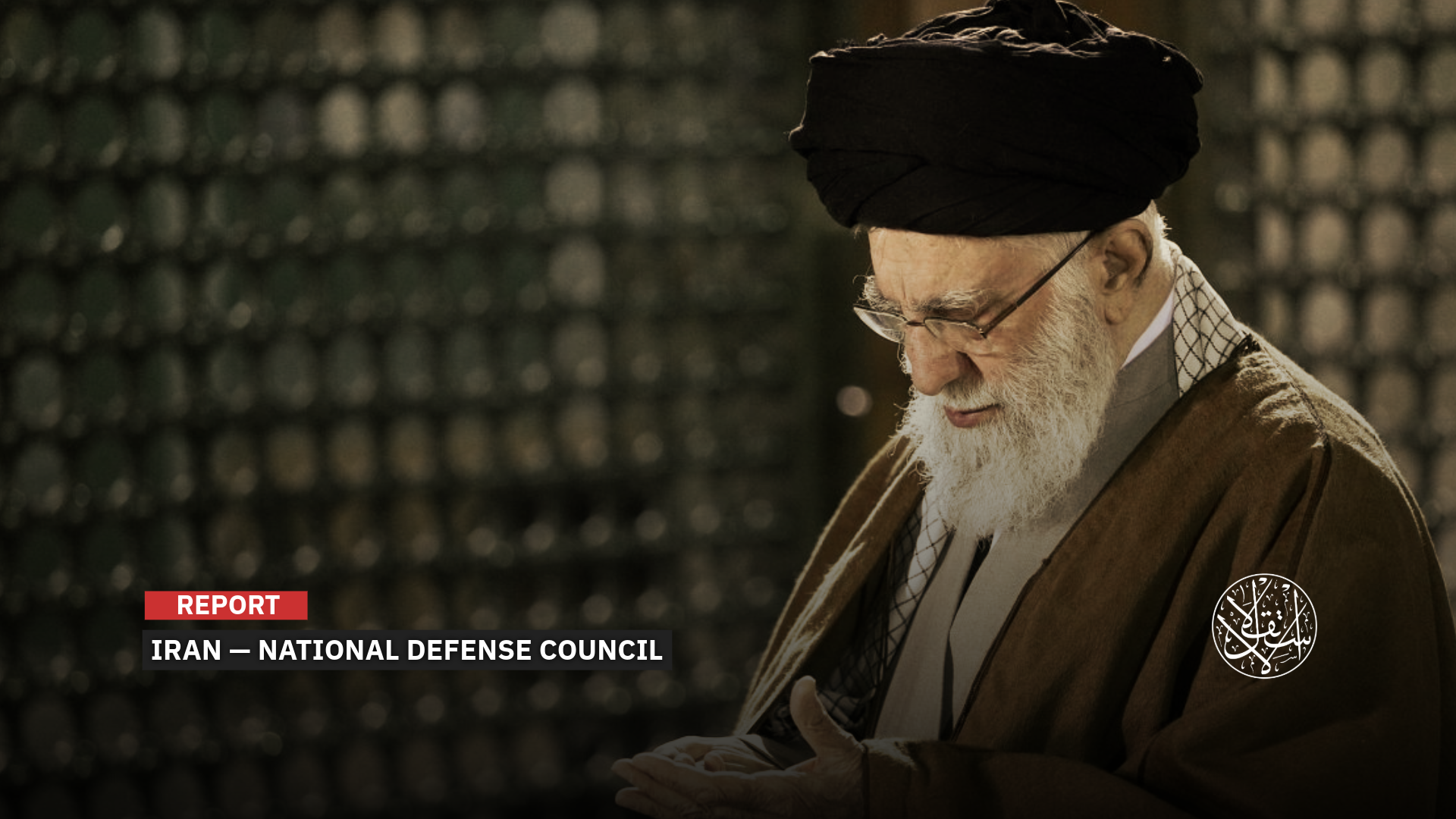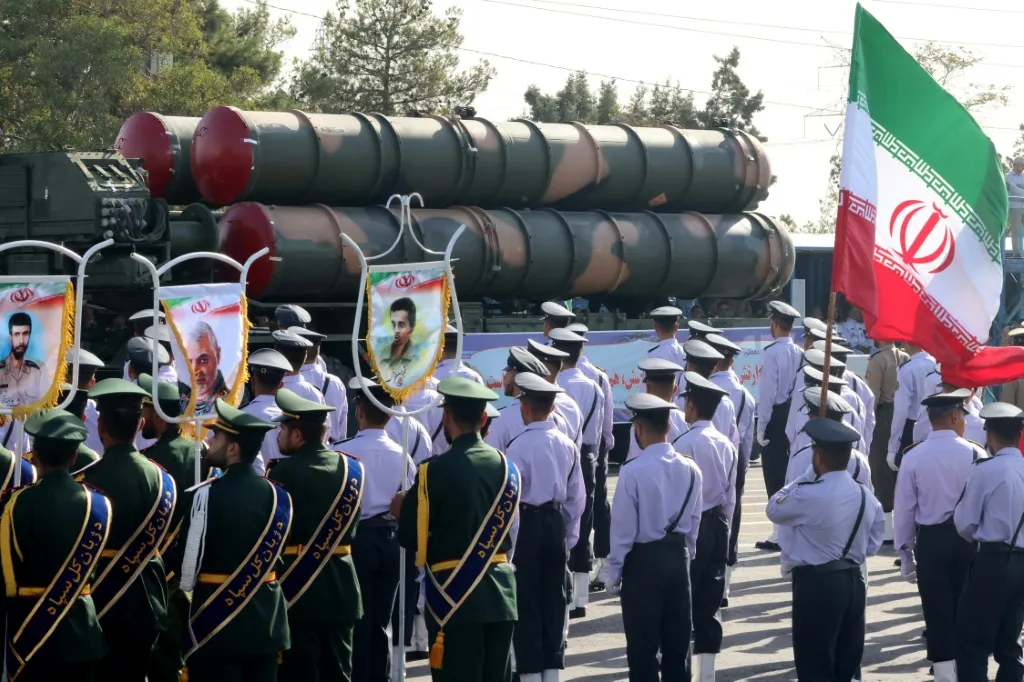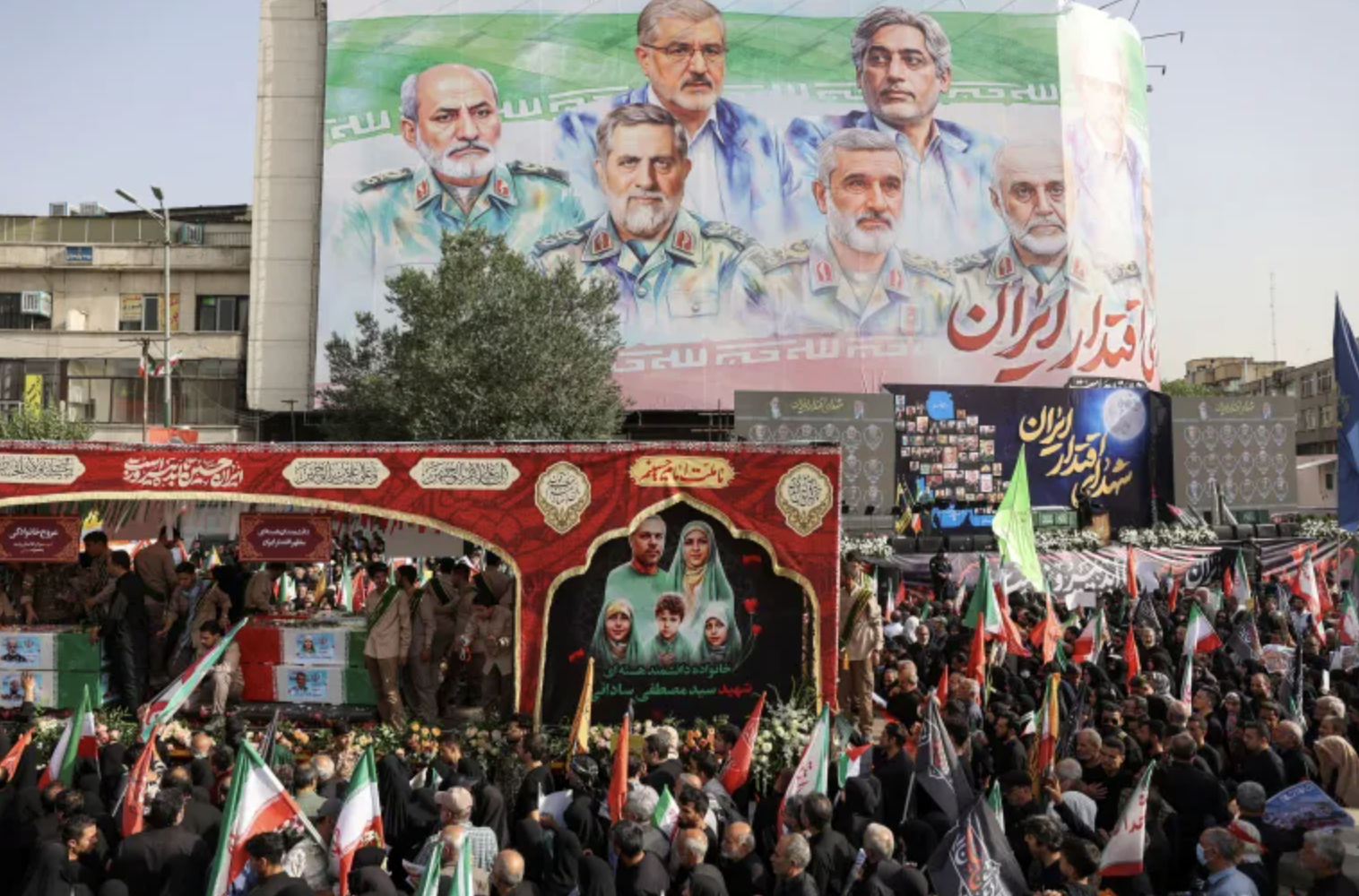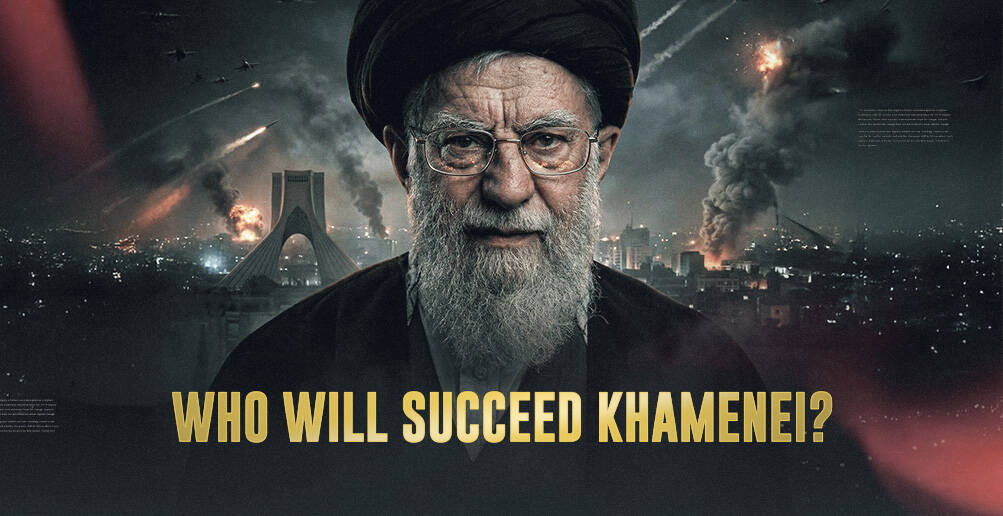Strategic Missions: Why Has Iran Moved to Form a National Defense Council?

“The Supreme National Security Council has been drained by overlapping powers, leaving it unable to deliver decisive military decisions.”
“Israel’s” recent aggression against Iran has sent shockwaves through the country’s top security institutions, exposing vulnerabilities in a leadership whose cohesion has been steadily eroding. In response, Fars News Agency, affiliated with the Revolutionary Guard, announced a major restructuring of the Supreme National Security Council and the creation of a new body called the National Defense Council.

Security Restructuring
In early August 2025, Fars News Agency cited informed sources announcing the establishment of a new body, the National Defense Council, described as carrying “strategic missions in the country’s defense policies,” with its full structure set to be completed soon. The agency framed the council as a cornerstone of the new governance arrangement in defense and security.
State television confirmed that the council will be chaired by the president and include senior military leaders alongside relevant ministry heads. Its mandate, officials said, is to review defense plans and centrally enhance the armed forces’ capabilities.
The announcement came in the aftermath of a 12-day Israeli war starting on June 13, 2025, which penetrated Iran’s military and nuclear infrastructure. The strikes killed senior military officers and nuclear scientists, dealing unprecedented blows to the Iranian government. Within the system, calls quickly grew for the creation of new military and security bodies to address a striking imbalance of power, underscored by the superior capabilities of the United States and the Israeli Occupation and the deep breaches in Iran’s military hierarchy revealed by the aggression.
Ali Saeedi, head of the political-ideological office of Supreme Leader Ali Khamenei, stressed in early August that Iran “must reconsider our security defense system and border protection and increase our intelligence capabilities,” he said, adding, “We must be able to act effectively against the most powerful defense and security systems. This is of utmost importance.”
The loss of senior military officials and nuclear scientists, caused by “Israel’s” successful espionage and internal infiltration, has accelerated Tehran’s efforts to dismantle spy networks embedded even at the highest levels of command. Analysts note that the Israeli Occupation could resume military operations at any moment under the ongoing U.S.-Israeli objective to prevent Iran from acquiring nuclear weapons.
As a first concrete step, President Masoud Pezeshkian appointed Ali Larijani, one of Khamenei’s senior advisors, as secretary of the Supreme National Security Council, replacing Ali Akbar Ahmadian, who had held the post since 2023. The restructured council will bring together the heads of the three branches of government, top military commanders, and relevant ministers. Its creation was approved under Article 176 of the Iranian constitution, which allows for the formation of subsidiary bodies overseeing defense and security.
Key to Understanding
The recent Israeli aggression represents Iran’s gravest security challenge since the war with Iraq under Saddam Hussein. The new National Defense Council is designed specifically to focus on military affairs and command during wartime. Analysts describe it as the most significant reorganization of Iran’s defense structure in decades, prompted by “Israel’s” latest aggression, which exposed coordination failures, air defense gaps, and the security apparatus’s inability to respond effectively to attacks on military and nuclear sites.
Officials acknowledge that the previous structures were too slow and fragmented to deal with complex regional and international threats, necessitating a fundamental rethinking of Iran’s defense priorities. On August 3, 2025, the commander-in-chief of Iran's military, Amir Hatami, warned that Israeli threats remain real and must not be underestimated.
“A 1% threat must be perceived as a 100% threat. We should not underestimate the enemy and consider its threats as over,” Hatami said, according to the official IRNA news agency, adding that the Islamic Republic’s missile and drone power “remains standing and ready for operations.”
Meanwhile, parliamentarian Esmail Kowsari, a member of the National Security and Foreign Policy Committee, said the council would enable “more decisive action against future threats.” He added that it should be “designed to surprise the enemy and neutralize threats with timely strikes.”
Iranian affairs expert Alaa al-Saeed told Al-Estiklal that “the council’s creation is not merely an administrative reshuffle or a redistribution of powers within the regime.” He described it as “a fundamental strategic shift driven by escalating security challenges and institutional failures in managing successive regional crises.”
Al-Saeed stressed that the timing of the announcement is crucial to understanding the move, as it comes amid overlapping Israeli threats after the recent war, U.S. repositioning in the region, deep security breaches within Iran, and the collapse of traditional deterrence relied upon for decades. He noted that “the Supreme National Security Council has been drained by overlapping powers and competing authorities, leaving it unable to deliver decisive military decisions, especially amid clashing interests between the presidency, the Intelligence Ministry, and the Revolutionary Guard.”
“The National Defense Council is designed to centralize decision-making and unify military command under the Guard’s dominance, bypassing civilian channels,” al-Saeed said.
“According to internal leaks, the new council will oversee major defense policies, arms projects, and regional operations from Tehran to Sanaa, Damascus, Beirut, and Baghdad, without checks or power-sharing.”
“I fear this move could be a prelude to an imminent confrontation or a potential military escalation, with Tehran seeking to handle it through a more decisive and less hesitant decision-making apparatus, and all signs point to the nuclear file returning to the table forcefully, leaving the region once again on the brink of escalation,” he added.
The National Defense Council is more than a new institution; it is a tangible manifestation of a profound transformation in Iran’s system, shifting from civil-military overlap to absolute armed security dominance, a change that may redefine the country’s trajectory entirely, according to the expert.

Internal Challenges
Iran now faces a threefold challenge: securing its airspace, maintaining domestic stability, and managing public opinion, whether in anticipation of a new aggression or fragile negotiations with Washington, directly or through intermediaries, over the nuclear program.
On the eleventh day of the Israeli aggression on Iran, “Israel” targeted elements of the country’s internal security apparatus, including the Basij, Revolutionary Guard, and Evin Prison, sending a sharp warning to the leadership. In response, Iranian security forces have intensified a wave of arrests, detaining hundreds on charges of collaborating with foreign intelligence agencies. In recent weeks, these crackdowns have extended to citizens and even foreigners accused of “espionage and infiltration.” Authorities announced the arrest of 700 individuals suspected of spying for “Israel” and seized more than 10,000 suicide drones across Tehran.
Yet as investigations deepened, it became clear to Iranian officials that the crisis was not solely homegrown. External actors appear to have assisted “Israel” in breaching the country’s defenses. Iran is now conducting a comprehensive internal review, from top leadership to lower tiers, to close security gaps across all sectors.
Reports indicate that Israeli intelligence, Mossad, allegedly recruited personnel within Iranian customs and logistics chains to smuggle drone components in luggage and personal belongings, bypassing inspections. The situation exposes deep-rooted issues within the Iranian system, including corruption, nepotism, and the penetration of foreign intelligence networks, particularly Israeli, into the highest levels of leadership.
Opposition analyst Morad Veisi, speaking to Iran International, argued that “the new National Defense Council is not meant to protect the people but to safeguard the regime and prevent its collapse.” The shock of the recent Israeli war has eroded Khamenei’s trust in the military and Revolutionary Guard leadership, prompting the creation of new structures above their heads.
Veisi added that forming a defense council alone will not solve Iran’s weakness in the face of the United States and “Israel.” The problem lies in the power imbalance; U.S. and Israeli superiority in military and intelligence domains cannot be addressed merely through new institutions.
Sources
- 7 things to know about Iran’s new Defense Council
- Iran’s Defense Council: A Security Leadership Body Fast-Tracked by War with Israel [Arabic]
- Iran Forms Defense Council with Strategic Mandate, Aimed at Protecting the Regime, Not the People [Arabic]
- What is Iran’s new defense council—and why does it matter?
- Iran Reforms Defense Structure with New Council
- Iran’s Regime Forms “Defense Council” Amid Post-War Security Shake-Up
- Ali Larijani reappointed secretary of Iran's top security body
- Iran's army chief says Israeli threats remain, state media say











